MercoPress. South Atlantic News Agency
Brazil
-
Tuesday, August 21st 2012 - 22:01 UTC
Brazil with the lowest performance in the first half of 2012 among BRIC countries

Russian GDP growth in percentage terms surpassed Brazil in the first half of the year and even if the market still prefers Brazil’s diverse economy over Russia, the South American country is now dead last in terms of economic growth in the big four emerging markets, BRIC.
-
Tuesday, August 21st 2012 - 18:43 UTC
Paraguay Electoral Tribunal officially announces April 2013 general election

Paraguay officially announced holding elections on April 2013, when a new president and congress will be voted. The three branches of government attended the launching of the announcement that took place at the Superior Electoral Justice Tribunal on Tuesday, one day ahead of the OAS Permanent Council debate on “the Paraguayan situation”.
-
Tuesday, August 21st 2012 - 05:21 UTC
Ecuador ready for dialogue with UK, but with eyes on Friday’s OAS meeting
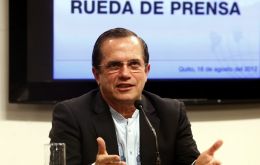
The Ecuadorean government reiterated on Monday that dialogue with UK on the Julian Assange case will continue once London officially “withdraws” the original message with threats. Quito also is hopeful that the coming OAS extraordinary meeting will ratify full support for Ecuador as has happened with other regional organizations.
-
Tuesday, August 21st 2012 - 04:27 UTC
Brazil’s federal staff several months strike extends to the highways police
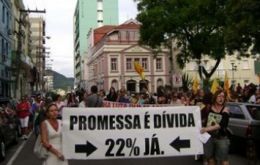
The Brazilian highways patrol police in several states joined the national strike of federal workers that are protesting for higher salaries and better working conditions. The strike of the National Federation of Highway Police (Fenapre) was decided unanimously over the weekend effective Monday.
-
Tuesday, August 21st 2012 - 02:56 UTC
Argentina hosted 5.7m tourists in 2011; iconic names play a significant role

Argentina has become the most visited country in South America with arrivals in 2011 reaching almost six million tourists, said Leonardo Boto head of the country’s National Tourism Promotion Institute, Improtur.
-
Tuesday, August 21st 2012 - 01:57 UTC
Re-re-election of Cristina Fernandez fully integrated to the political agenda of Argentina

Several groups allied to Argentine president Cristina Fernandez are actively promoting a constitutional review that would allow re-election for a third consecutive four year mandate. The last Argentine constitutional review was in 1994 when the four-year mandate was introduced with the possibility of an only immediate re-election, thus modifying the six year mandate but with no re-election.
-
Monday, August 20th 2012 - 21:14 UTC
Insufficient harvests and soaring prices anticipate another world food crisis

With droughts parching farms in the United States and near the Black Sea, weak monsoon rains in India and persistent hunger in Africa's Sahel region, the world could be headed towards another food crisis, experts say.
-
Monday, August 20th 2012 - 04:45 UTC
Unasur calls for dialogue to solve the controversy between Ecuador and the UK
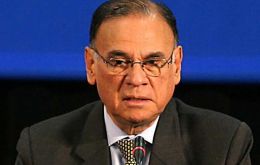
The Union of South American Nations (Unasur) called for dialogue to solve the crisis between Ecuador and Great Britain regarding the diplomatic asylum granted by the Andean country to Wikileaks founder Julian Assange who is holed in at the embassy in London.
-
Monday, August 20th 2012 - 01:42 UTC
Ecuador insists in Mercosur interest, but admits it will be a long process
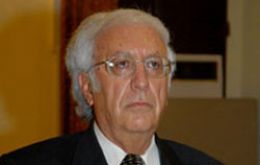
Ecuador has reiterated its intention of joining Mercosur but this needs to be compatible with the rules from the Community of Andean Nations, CAN, (to which it now belongs) said Ecuadorean ambassador Horacio Sevilla Borja.
-
Saturday, August 18th 2012 - 05:57 UTC
Central bank announces first signs of Brazilian economy recovery
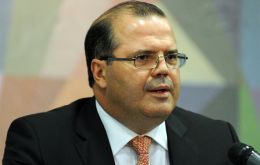
Brazil's economy enjoys sound fundamentals for sustainable growth, with an economic expansion likely to pick up speed in the next few quarters, Central Bank President Alexandre Tombini said at a business conference Friday.
